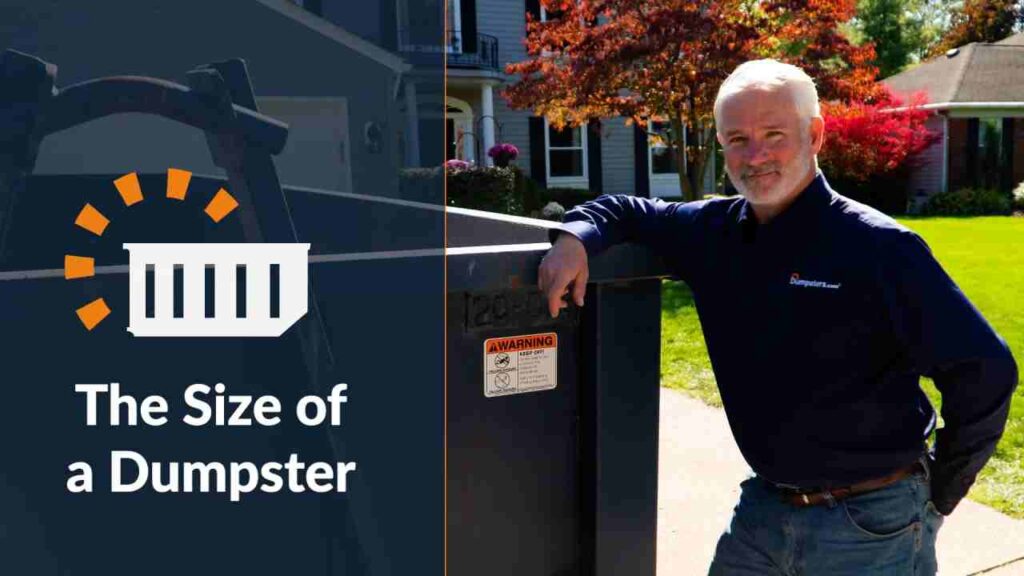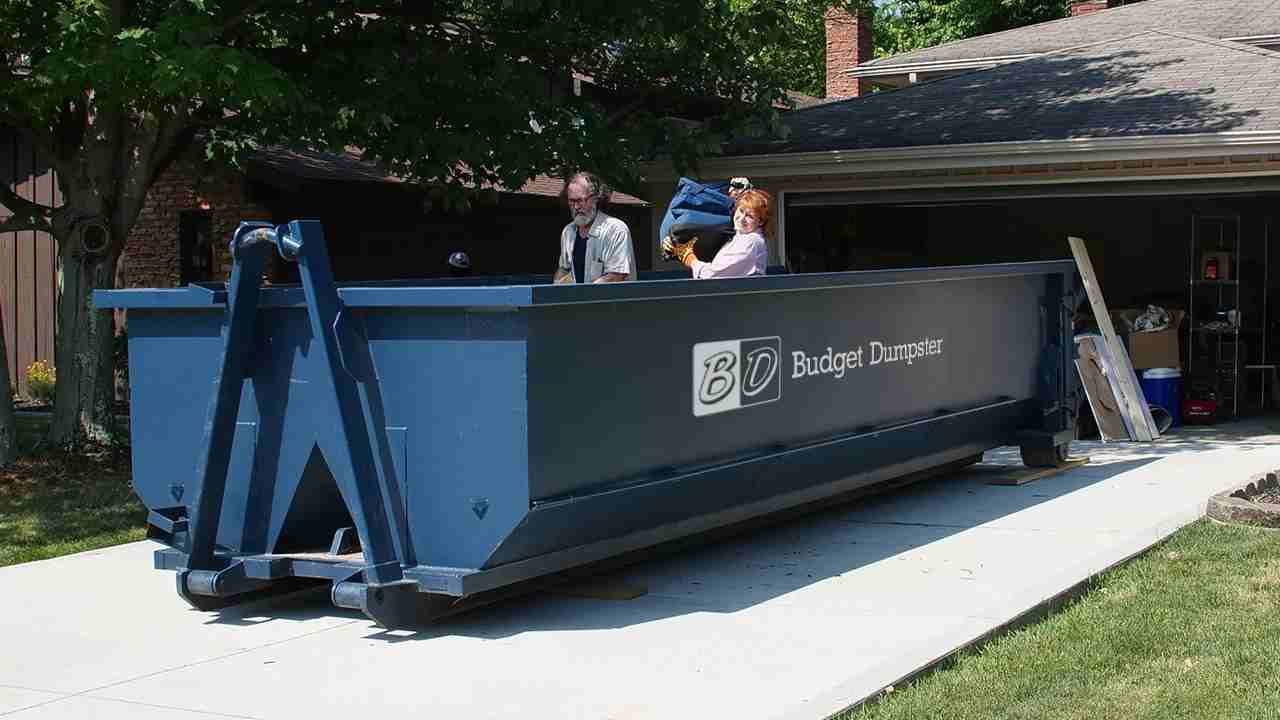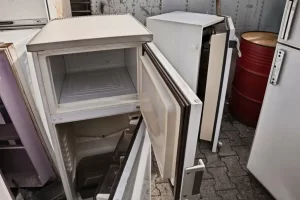Curious about dumpster rental sizes in Michigan? Whether you’re tackling a home renovation, decluttering project, or construction job, choosing the right dumpster size can make all the difference. In Michigan, the size of dumpsters rented the most often depends on the scope of the project and the amount of waste generated. From compact 10-yard dumpsters suitable for smaller cleanouts to larger 30-yard or 40-yard dumpsters for major construction or demolition projects, there’s a range of options available. With the help of A&B Junk, let’s explore the common dumpster sizes and their typical uses to find the perfect fit for your next project in Michigan!

Understanding the most popular dumpster sizes can help you plan and budget effectively for your waste disposal needs. Whether you’re dealing with household cleanouts, landscaping projects, or construction debris, having insight into common dumpster sizes ensures you choose the right capacity to handle your waste efficiently. Additionally, knowing which sizes are frequently rented in Michigan can give you a better idea of what options are popular and suitable for various types of projects. Explore dumpster rental services to find the ideal size for your specific needs and ensure a smooth waste management process from start to finish.
Factors Influencing Dumpster Size Selection
When deciding on the right dumpster size, several factors come into play. The type and amount of waste you’re disposing of, the duration of your project, and the available space for the dumpster are key considerations. For larger projects like renovations or construction, you’ll likely need a bigger dumpster to accommodate the volume of debris. On the other hand, smaller cleanouts or landscaping jobs may require a more compact dumpster size. It’s also essential to factor in any weight limits or disposal regulations specific to your location or waste type when selecting a dumpster size. Understanding weight limits ensures safe and compliant waste disposal practices.
Common Dumpster Sizes for Residential Projects
For residential projects, several common dumpster sizes cater to different needs. These typically range from 10-yard dumpsters suitable for minor cleanouts or small renovations to larger 20-yard or 30-yard dumpsters for more extensive projects. A 10-yard dumpster can hold approximately 4 pickup truck loads of debris, making it ideal for garage cleanouts or small remodeling jobs. Meanwhile, a 20-yard dumpster can handle around 8 pickup truck loads, suitable for medium-sized renovations or yard cleanups. Understanding these common sizes helps homeowners choose the right dumpster for their specific project requirements. Additionally, knowing the common types of waste accepted by removal services assists in proper disposal planning.
Choosing the Right Dumpster Size for Construction Debris
Construction projects generate significant amounts of debris, requiring appropriately sized dumpsters for efficient waste disposal. Depending on the scale of the construction job, dumpsters ranging from 30 yards to 40 yards are commonly used. A 30-yard dumpster can hold about 12 pickup truck loads of debris, making it suitable for mid-sized construction projects like room remodels or roof replacements. Larger construction sites may opt for 40-yard dumpsters, which can accommodate approximately 16 pickup truck loads of debris. Choosing the right size ensures that construction debris is managed effectively without frequent emptying.

Dumpster Sizes for Landscaping and Yard Waste
Landscaping and yard projects also benefit from specific dumpster sizes tailored to green waste disposal. Dumpsters in the range of 10 to 20 yards are commonly used for landscaping debris such as branches, grass clippings, and soil. A 10-yard dumpster is suitable for small yard cleanups, while a 20-yard dumpster can handle larger landscaping projects or tree trimmings. Some dumpster rental services offer specialized bins for yard waste, making it easier to separate and dispose of green debris responsibly.
Benefits of Renting a Properly Sized Dumpster
Renting a dumpster that matches your project’s waste volume offers several benefits. A properly sized dumpster ensures efficient waste disposal without overloading or underutilizing the container. Overloading can lead to safety hazards, while underutilization may result in unnecessary costs. With the right size, you can streamline waste management, minimize the number of trips for dumpster exchanges, and stay within budget. Additionally, renting the appropriate size promotes environmental responsibility by optimizing space and reducing the overall carbon footprint of waste transportation.
Tips for Efficient Loading and Space Management
Efficient loading and space management are crucial for maximizing the capacity of your rented dumpster. Start by breaking down large items to save space and ensure a more even distribution of weight. Distribute weight evenly throughout the dumpster to prevent overloading or imbalance. Place heavier items at the bottom and distribute lighter materials on top. Compact waste as much as possible to make room for additional debris. Avoid placing materials outside the dumpster or exceeding weight limits to prevent overages and additional fees.
Environmental Considerations in Dumpster Rental
When renting a dumpster, consider environmental factors such as waste segregation, recycling options, and proper disposal practices. Choose dumpster rental services that prioritize sustainable waste management practices, such as recycling materials whenever possible. Separate recyclable items like metal, wood, and cardboard from general waste to reduce landfill contributions. Be aware of any hazardous materials and dispose of them according to regulations to prevent environmental harm. By adopting environmentally conscious practices in dumpster rental, you contribute to conservation efforts and promote a cleaner environment.
Understanding Weight Limits and Overages
Most dumpsters have weight limits that determine the amount of waste they can safely hold. Exceeding these weight limits can result in overages and additional fees. It’s important to understand the weight restrictions for your rented dumpster and avoid overloading it with heavy materials. Communicate with your dumpster rental provider about weight limits, and consider factors like wet weather conditions that can increase the weight of materials. By staying within weight limits, you avoid unexpected charges and ensure safe transportation and disposal of your waste.
Availability and Accessibility of Dumpster Rental Services
Availability and accessibility are key considerations when choosing a dumpster rental service. Ensure that the rental company offers the dumpster size you need and can deliver it within your desired timeframe. Consider factors like accessibility to your property for drop-off and pickup of the dumpster. Clear any obstacles or provide specific instructions to the rental company to facilitate smooth delivery and retrieval. Additionally, inquire about rental terms, pricing structures, and any additional services or amenities offered by the rental provider.
Rental Costs and Budgeting for Waste Disposal
Rental costs and budgeting play a significant role in choosing a dumpster size and rental duration. Compare quotes from multiple dumpster rental companies to find competitive pricing that fits your budget. Consider factors like rental duration, delivery fees, weight limits, and any additional charges for overages or special disposal requirements. Plan your waste disposal needs in advance to avoid rush fees or last-minute arrangements. By budgeting effectively and understanding all associated costs, you can make informed decisions and ensure a cost-effective waste management solution for your project.
Dumpster Placement and Permitting Requirements
Proper placement of the dumpster and compliance with local permitting requirements are essential aspects of dumpster rental. Choose a location for the dumpster that is level, stable, and easily accessible for loading and unloading. Avoid blocking driveways, sidewalks, or traffic flow, and obtain any necessary permits or approvals required by local authorities for dumpster placement. Follow guidelines regarding dumpster placement to ensure safety, accessibility, and compliance with regulations.
Conclusion
In conclusion, understanding the nuances of dumpster rental and waste disposal is key to a successful and efficient project. Factors such as the type of project, amount of waste generated, and specific disposal needs guide the selection of the appropriate dumpster size. Whether it’s a residential cleanout, landscaping endeavor, or construction project, choosing the right size dumpster ensures optimal waste management and cost-effectiveness. Efficient loading and space management techniques further maximize the capacity of the dumpster while minimizing potential hazards and overages. Environmental considerations like recycling options and proper disposal practices promote sustainability and responsible waste management. By working with reliable rental services, adhering to weight limits, and considering budgeting factors, individuals and businesses can streamline the waste disposal process and contribute to a cleaner, greener environment.
FAQs
FAQ: What factors should I consider when choosing a dumpster size for my project?
Answer: Consider the type of project, amount of waste expected, available space for the dumpster, weight restrictions, and any specific disposal needs or regulations.
FAQ: How do I efficiently load a dumpster to maximize its capacity?
Answer: Break down large items, distribute weight evenly, compact waste as much as possible, and avoid overloading with heavy materials to optimize space and prevent overages.
FAQ: Are there environmental considerations I should keep in mind when renting a dumpster?
Answer: Yes, prioritize recycling options, segregate recyclable materials, dispose of hazardous items properly, and choose rental services that promote sustainable waste management practices.
FAQ: What are the typical rental costs and budgeting considerations for dumpster rental?
Answer: Rental costs vary based on factors like dumpster size, rental duration, delivery fees, weight limits, and any additional services. Plan your waste disposal needs in advance to budget effectively and avoid unexpected charges.
FAQ: Do I need permits or approvals for dumpster placement, and how can I ensure compliance?
Answer: Depending on your location and the placement of the dumpster, you may need permits or approvals from local authorities. Communicate with your rental provider and follow guidelines to ensure safe and compliant dumpster placement.




